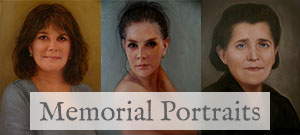
I Write Obituaries for a Living: This Is How The Pandemic Changed Me
“An obituary writer?” people ask. ‘“Isn’t that morbid, scary, depressing?”
When I tell them it’s the exact opposite, they stand back and simply look at me, baffled. Some people try to understand. Others think I’m lying or in denial.
People don’t like the idea of dying. They don’t like talking about it or planning for it. No matter if we pride ourselves on an intellectual understanding that death is real and coming for us all, a large part of us can’t believe that one day, we’ll just cease to exist.
Being an obituary writer allows me to feel this with an unsettling intensity and in a deeply personal way. But I try not to take it too personally. After all, obituary writing is not about me and my dying and death. It’s not about how comfortable I’ve trained myself over the years to become with the inevitability of my demise. Writing an obituary is about connecting in a visceral way with other people’s manifold processes of grieving and remembering. It’s a delicate probing, a teasing forth, patiently waiting to see what unravels. While cultivating empathy is important, an obituary is not a eulogy. The obituaries I write are wide-ranging and generous, but they are also raw and true.
The people who contact me for an obituary are either very close to death themselves – so there’s no use refuting it – or have a loved one who is on their deathbed or already dead. Even before the onset of Covid-19, most of my clients were American, even though I’m based in Australia. My fellow Australians don’t seem as capable of envisaging their own deaths or those of their close family and friends. Maybe it goes with our Aussie “she’ll be right” mentality; our mainstream culture of sun, sport, surf and sand, our attitude of taking things lightly and hoping everything will just work out in the end.
I wrote my 44-year-old sister’s obituary when she died 10 years ago from the same cancer I’d been diagnosed with. I’ve written my (still-living) father’s obituary, and my mother-in-law’s when she died of Alzheimer’s complications. My own mother tells me in no uncertain terms that she doesn’t want an obituary. She’s Greek Orthodox, old-school. She thinks writing about someone’s life, as if it’s a neat, uncomplicated fairy story, is frivolous. Her aim is to transcend her personal story when she dies.
I’ve also written the first part of my own obituary. I really do believe life is too short not to undertake such an illuminating and confronting task. It could be the most profound narrative you ever write. You ask yourself soul-searching questions you’d never usually ask in the fast-paced, neurotic undertow of the daily grind. You take time to contemplate the big mysteries. You sit with them for a while. With the insights you’ve gleaned, you could even change the trajectory of the rest of your life.
When clients contact me and decide they want an obituary written, I send them a list of detailed questions. They range from the practical to the silly to the sublime — anything to start building a picture of how they see themselves, how others see them, and who they really are. After they send their answers back, I start constructing the edifice of a life, memory by memory, regret by regret, love by love. It’s probably the most satisfying writing I do. I get to know a former stranger as if I am now under their skin. It’s a bit like creating a character in one of my novels, but in this case, I’m also amplifying the voice of someone who might otherwise be forgotten. I get to feel what they’ve felt, experience what they’ve experienced. Many of my obituaries have been of migrants to America from the 50s and 60s. I’ve felt their terror and exhilaration at coming to a new land, and also their sense of loss, which never leaves them.
Most dying people have similar regrets: not spending enough time with family when the children were young, working too hard, not telling their spouses and parents often enough that they love them, not expressing their sadness and anger in constructive ways. Most people also have similar highlights and joys – and these always distil down to relationship: relationships with family, friends, lovers, neighbours, animals, birthplaces and local environments.
Before the virus, most people who contacted me were children and grandchildren of the elderly, wanting to enshrine their memory. Now, I’m getting enquiries from all ages and walks of life. Covid-19 doesn’t discriminate. During this pandemic, the scale of death is so staggering that it’s hard to focus on one person, one ordinary little life. Yet my philosophy has always been to write an obituary as if the person was famous: as if their life mattered not only to their family and friends and neighbours, but to their cultures and the global community. My aim has always been to edify their life. And this is never more important than now, when we are all overwhelmed and at risk of compassion fatigue from the countless deaths we’ve had to absorb and mourn.
Death can be scary. I don’t deny this. It’s the one crazy unknown we all must face. In this era of shock upon shock: the pandemic and climate catastrophe, inequality, civil unrest and disillusionment with government and politics, the daily rents and rips in the very fabric of our societies, death is the ultimate certainty we must embrace.
We are all going to die, every last one of us. This realisation, in itself, should make us more tender toward each other, more aware of how precious and fleeting life is, and wide awake to the common ground we share.



